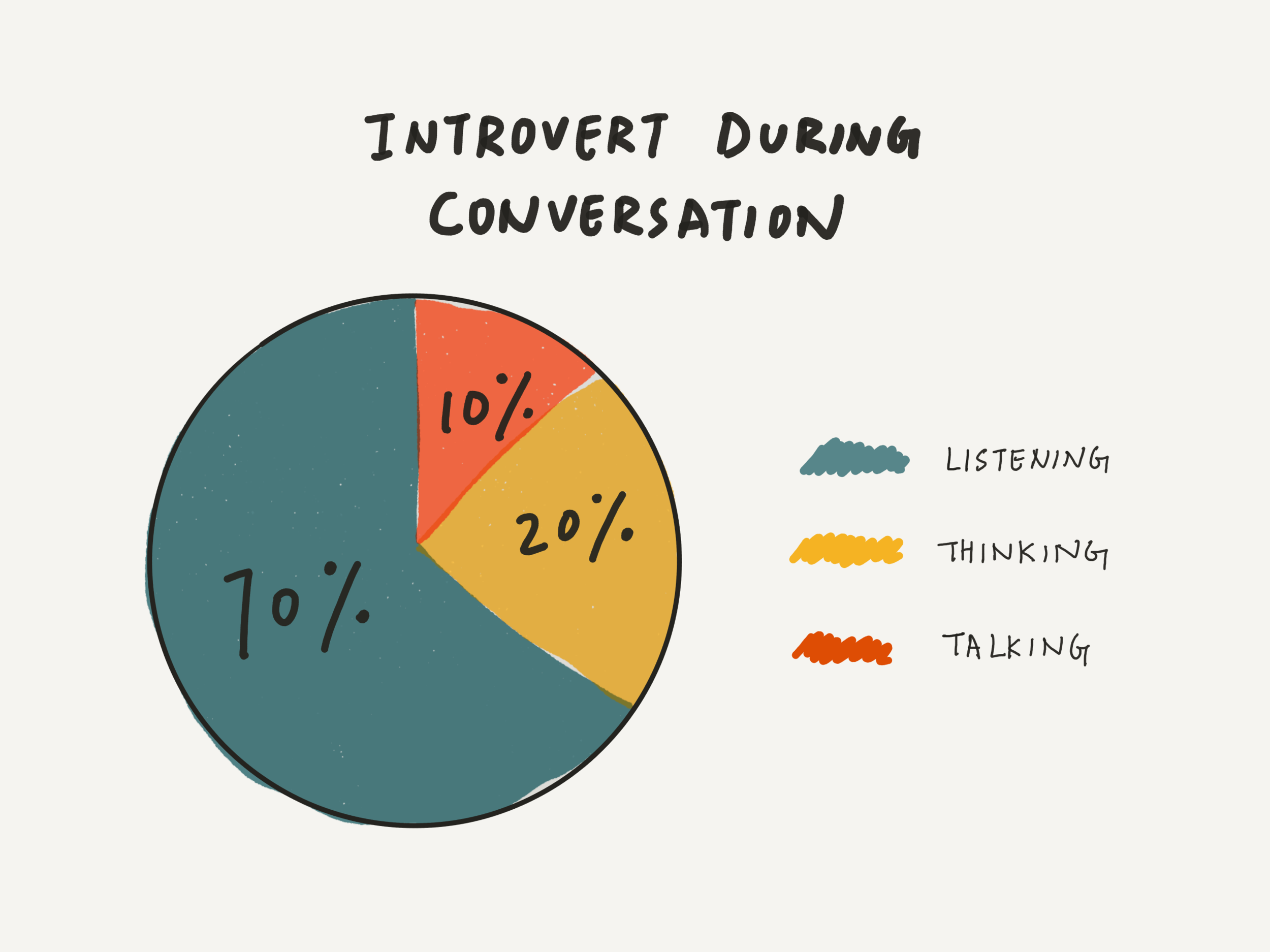I didn’t realize this until recently but my childhood was more painful than I thought. Not because it was particularly traumatic-- it was not. I had two loving, flawed parents, who loved me the best they could and allowed me to search out my path in the world with lots of support and kindness. No, my childhood was painful because I wasn’t my younger brother.
My brother was an extrovert. But not just your run-of-the-mill extrovert. He was a life-of-the-party, makes-everyone-laugh extrovert. My brother was just magnetic from a young age. People were drawn to him and loved him. He always had a lot of friends. Girls seemed to swarm to him in a way they never did for me. He was always the center of attention.
In many ways, I was the complete opposite. I was quiet. Incredibly quiet. New people were scary to me. It took a lot for me to open up. Also, I wanted to be alone a lot, whether it was reading or playing video games. While my brother was very comfortable being in the spotlight, I absolutely hated it. I didn’t have a ton of friends, but the friends I did have were deep friendships. And holy shit, I was sensitive ha! I would write in my journal for hours about all the hurts I felt. I felt deep empathy for many people. I wrote love letters to girls that got me rejected.
Being the opposite of my brother was hard enough, but what made it even harder was the shame I felt because of it. My mother did a wonderful job of raising me in many ways, but she often asked me why I was so shy and nervous in new situations, and why I didn’t say more. And she endlessly praised my brother’s extroverted qualities. My mother is also an extreme extrovert, so it now makes sense to me that my mother would praise the qualities she saw in herself. But at the time, it was painful in my own skin. I didn’t like myself. It led to some bouts of serious depression.
Fast forward to the present, the opposite is true. I am mostly comfortable in my own skin. I still have my anxieties, but am for the most part happy and at peace. What changed? It was a slow process of acceptance. It took me a while, but I came to realize that all the ways I was different from my brother were not deficiencies. In fact, when looked at the right way, they were strengths.
In other words, I came to realize that I was an introvert. It meant my way of being in the world wasn’t bad but just different from my brother’s. And it came with all sorts of benefits that my extroverted brother doesn’t have. For example, I used to believe my sensitivity was a detriment. At some point, I had internalized the toxic, masculine myth that men are not sensitive and did not cry. I often felt that something was wrong with me as a young person. But it has proven a great asset to me as an adult. For one, it led me to my current work as a psychotherapist. It is work that I find incredibly meaningful and important. And even though it is often exhausting, I love it. It feels more like a calling than anything else, and unless something drastically changes, it feels like a lifelong profession.
I am also lucky enough to enjoy my alone time immensely without feeling lonely (and to have a partner who for the most part respects it!) Alone time for me is recharging. It is time to read something I love, watch a movie, or do something creative. Because of my introversion, I am have written hundreds of poems, short stories, and blog posts. I have also taken up drawing and painting as hobbies.
In addition, I’ve taken my experience as an introvert and been able to help people, especially young people, in my psychotherapy practice feel more accepted. I can think of a handful of introvert teenagers whose parents brought them to see me, usually because they believed something was “wrong” with their kid. “Why don’t they talk more?” or “They’re so quiet” were comments I have often heard. But after working with the child and the families, I have come to help the parents accept that their child isn’t broken. They’re just different. It has made a tremendous difference in the lives of a few introverted teenagers.
What does this all mean? It comes down to one word: acceptance. Acceptance for another person’s introversion. It wasn’t any one’s fault per se, but I wish someone had let my parents know that there was nothing wrong with me. It would have saved me a bit of pain as a kid. Maybe with an understanding of your child’s or friend’s or spouse’s introverted needs, we can spare them a bit of pain too.

